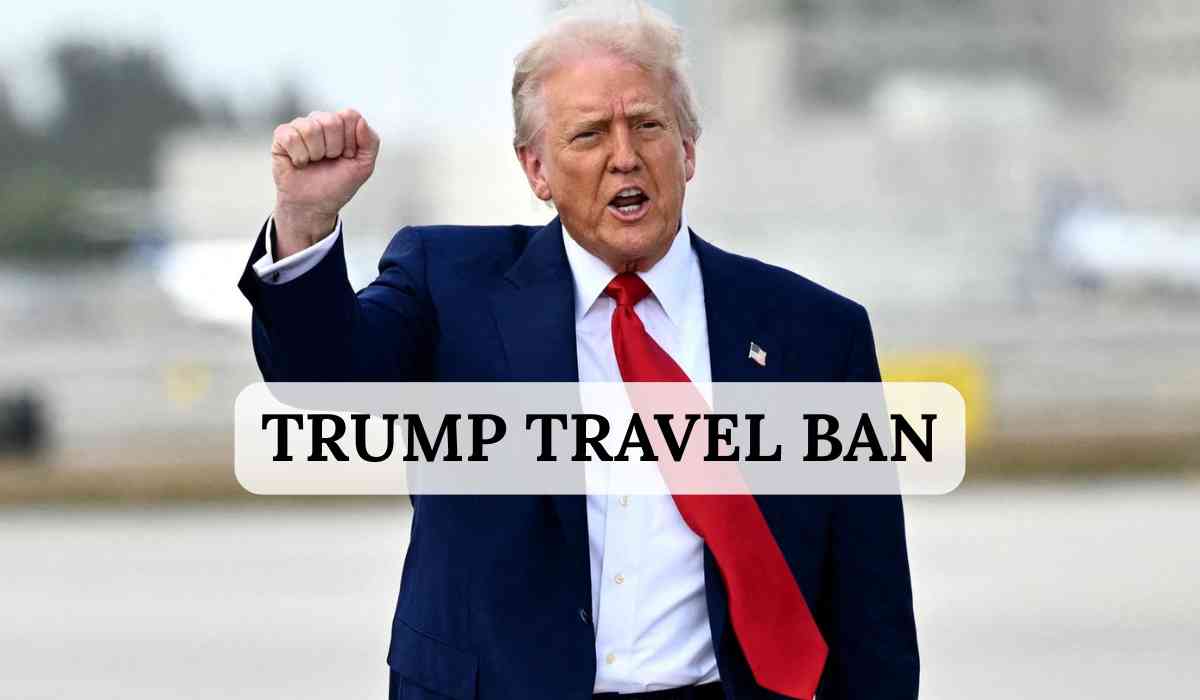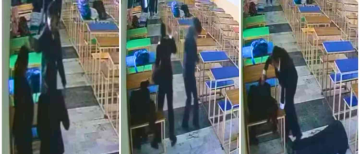Former U.S. President Donald Trump has signed a new presidential proclamation imposing travel bans on nationals from 12 countries, citing concerns over national security risks. The announcement marks a continuation and expansion of Trump’s previous travel restrictions from his first term, often referred to as the "Muslim ban." Additionally, Trump issued an order targeting foreign student visas at Harvard University amid escalating tensions with the prestigious Ivy League institution.
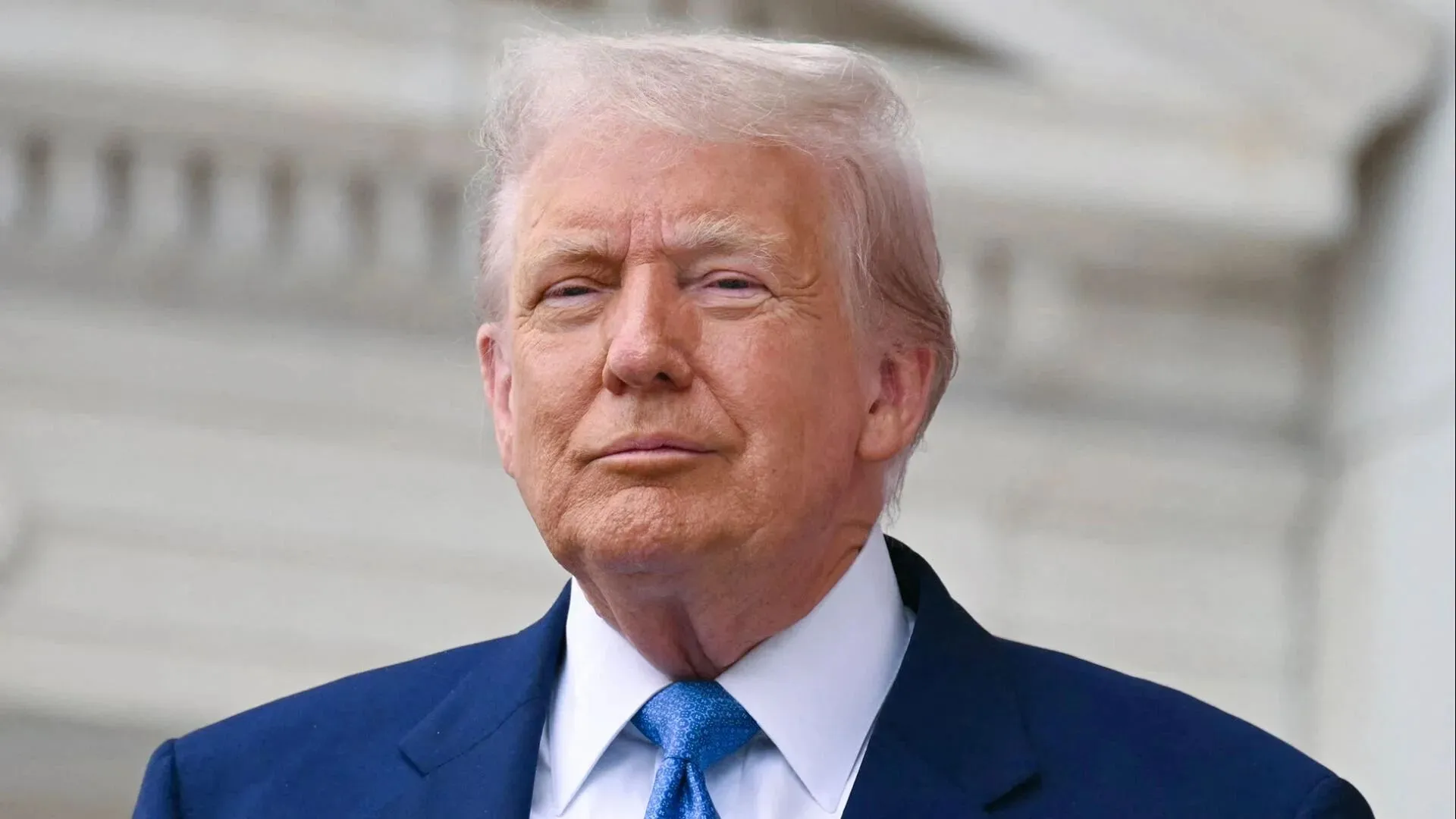
Overview of the New Travel Ban
The White House proclamation restricts entry into the United States for nationals from the following 12 countries:
-
Afghanistan
-
Myanmar
-
Chad
-
Republic of the Congo
-
Equatorial Guinea
-
Eritrea
-
Haiti
-
Iran
-
Libya
-
Somalia
-
Sudan
-
Yemen
The ban officially took effect on Monday, June 9, 2025. According to the White House, these “common sense restrictions” are intended to protect American citizens from perceived national security threats linked to insufficient vetting, high visa overstay rates, or lack of cooperation on identity and threat information sharing.
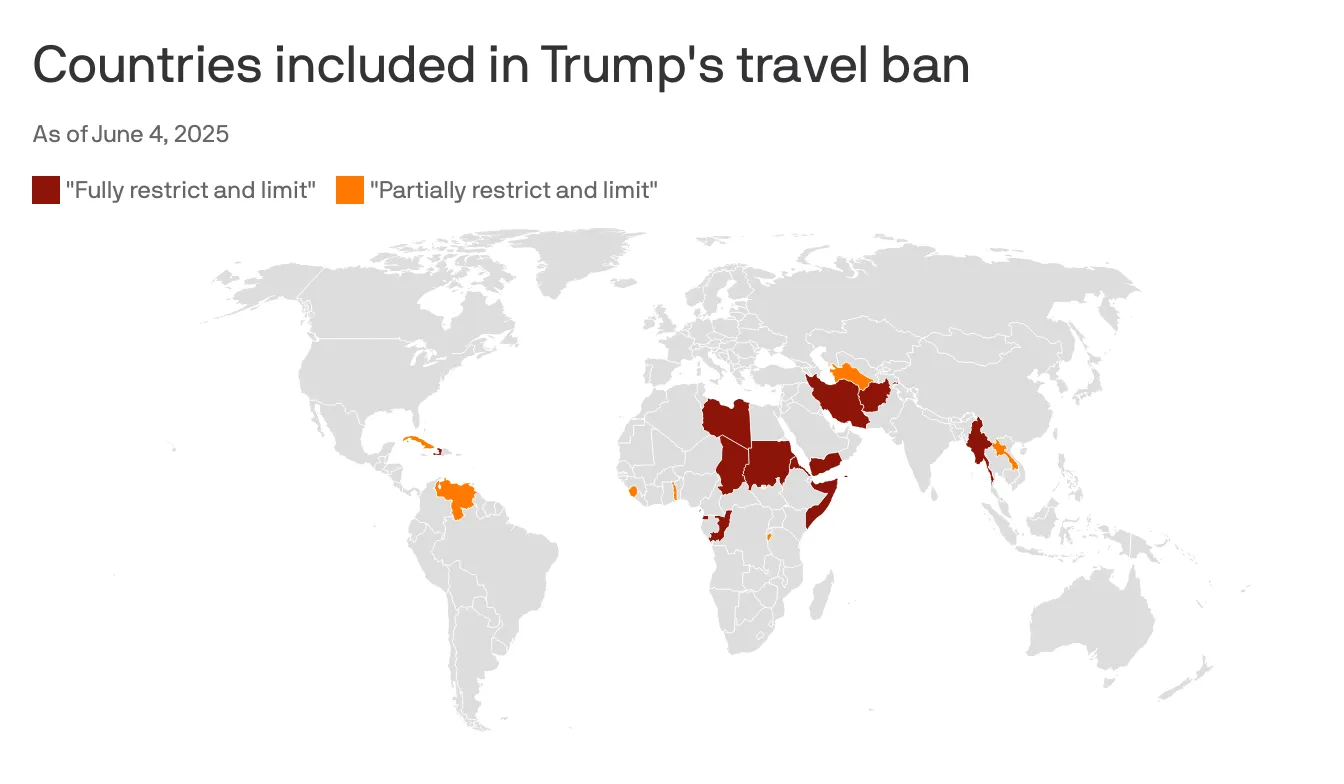
White House Perspective: Protecting American Safety
White House spokeswoman Abigail Jackson emphasized the administration’s focus on safeguarding the American people. She stated,
“President Trump is fulfilling his promise to protect Americans from dangerous foreign actors that want to come to our country and cause us harm. These common sense restrictions are country-specific and include places that lack proper vetting, exhibit high visa overstay rates, or fail to share identity and threat information.”
She explained that:
-
The restrictions are country-specific, targeting places with poor vetting, high visa overstay rates, or failures to share critical identity and threat information.
-
These measures are intended to safeguard American citizens and their safety.
Jackson also stated that the travel ban is in line with the White House’s approach to act decisively in the best interests of national security.
Historical Context: Trump’s First Travel Ban
Trump’s new proclamation echoes the controversial travel ban issued early in his first term in 2017, often referred to as the “Muslim ban.” That earlier ban initially targeted seven Muslim-majority countries: Iran, Libya, Syria, Yemen, Somalia, North Korea, Venezuela, and Chad, and faced widespread protests, legal challenges, and several revisions before the Supreme Court upheld it in 2018.
The original ban caused significant disruption, stranding thousands of travelers, including tourists, migrants, business visitors, and U.S. green card holders at airports worldwide. Protesters gathered in major cities and airports to oppose the ban, citing concerns about discrimination and constitutional rights.
Trump defended the initial travel restrictions as successful in preventing national security threats from entering the United States.
Partial Restrictions on Seven Additional Countries
In addition to the full ban on 12 countries, Trump’s proclamation partially restricts travel for nationals of seven other countries:
-
Burundi
-
Cuba
-
Laos
-
Sierra Leone
-
Togo
-
Turkmenistan
-
Venezuela
According to senior White House correspondent Jennifer Jacobs, these countries face partial bans to allow them the opportunity to improve their vetting and screening processes and enhance intelligence sharing with U.S. authorities.
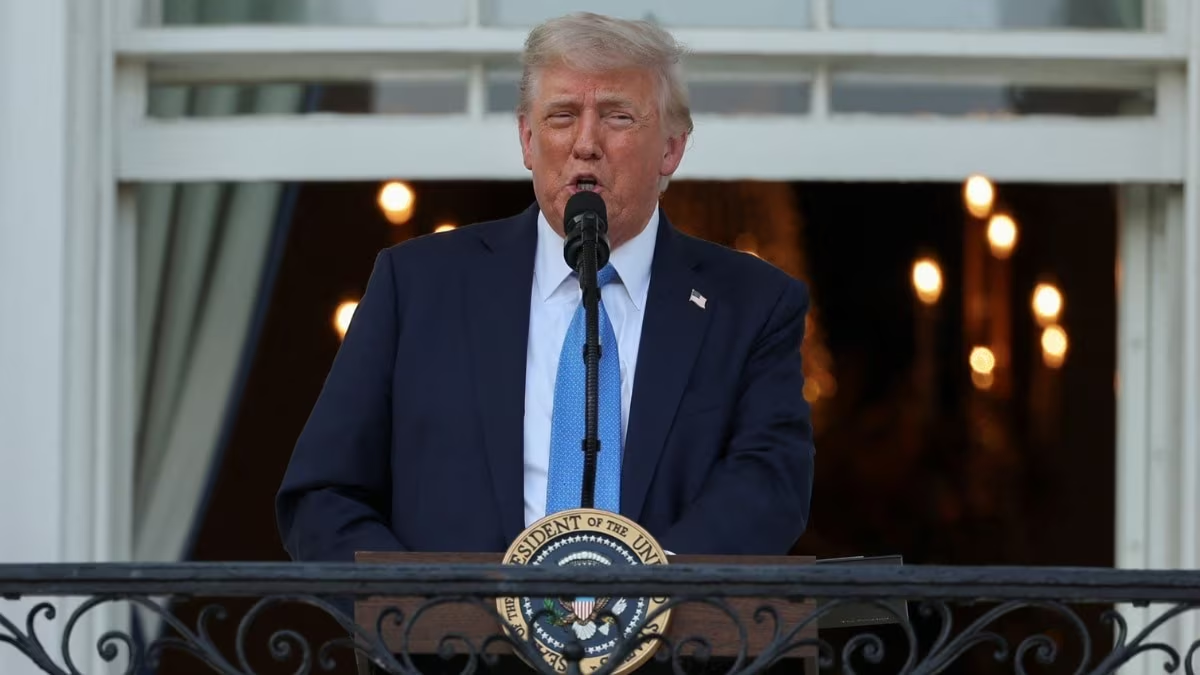
Trump Cites Recent Colorado Attack as Justification
In a video posted on his social media platform Truth Social, Trump linked the new travel ban to a recent firebomb attack in Boulder, Colorado, committed by an Egyptian national and his family. Trump highlighted this as evidence of the "extreme dangers" posed by foreign nationals entering the U.S. without proper vetting.
He also criticized what he called the Biden administration’s "open-door policies," blaming them for "millions of illegals" in the country. Trump underscored that the severity of restrictions on each country depends on the threat level they pose and indicated the list of countries could be revised if improvements are made.
In his words, “We don’t want ’em.”
Travel Ban Also Includes Restrictions on Foreign Student Visas at Harvard
In a related move, Trump signed an order restricting foreign student visas specifically at Harvard University. The White House accused Harvard of:
-
Being the top overseas academic institution for Chinese Communist Party officials, highlighting that President Xi Jinping’s daughter studied there.
-
Failing to combat antisemitism adequately.
-
Employing discriminatory hiring and admissions practices.
The Trump administration had previously tried to revoke Harvard’s certification under the Student and Exchange Visitor Program (SEVP) but was temporarily blocked by a federal judge. Harvard has been given 30 days to prove compliance with SEVP requirements. The White House stated that foreign students are welcome but must be individuals who "can love our country."
Exceptions and Exemptions to the Travel Ban
Despite its breadth, the travel ban includes exemptions for certain categories of people, including:
-
Athletes traveling for major international events (e.g., World Cup, Olympics).
-
Holders of immigrant visas for ethnic and religious minorities facing persecution in Iran.
-
Afghan nationals holding Special Immigrant Visas.
-
Lawful permanent residents (green card holders) of the U.S.
-
Dual nationals with citizenship in countries not affected by the ban.
Furthermore, the Secretary of State retains the authority to grant exemptions on a “case-by-case” basis if it serves U.S. national interests.
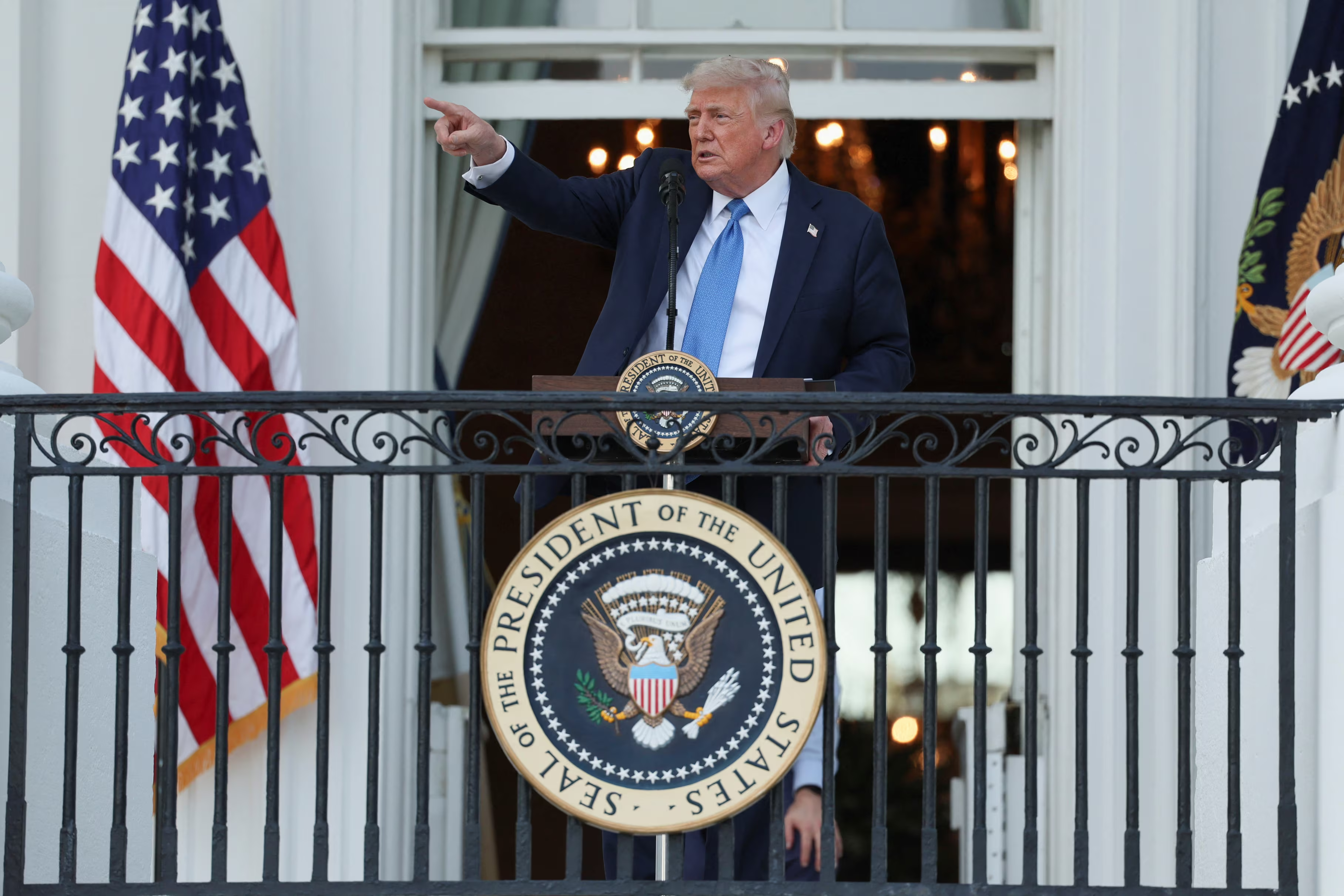
Political and Public Reactions to the Ban
- Democratic Criticism
Prominent Democrats swiftly condemned the travel ban. Washington Congresswoman Pramila Jayapal described it as an expansion of the “Muslim ban,” warning it would further isolate the U.S. internationally and unfairly target groups based on their governments rather than individuals.
Congressman Don Beyer accused Trump of using prejudice and bigotry that weaken U.S. global leadership and betray the ideals of the nation’s founders.
- Mixed Reactions Among Cuban-Americans in Florida
The inclusion of Cuba in the partially restricted list has sparked complex responses among Cuban-Americans in Florida, many of whom supported Trump and advocate for hardline policies against the Cuban government.
While some celebrate the ban as a tough stance on the communist regime, others express concern about the impact on ordinary Cubans seeking family reunification or legal visas to the U.S., fearing it may erode the historically privileged migration status of Cuban nationals.
- International Responses
-
Venezuela: Interior Minister Diosdado Cabello condemned the ban as fascist and supremacist, warning that being in the U.S. is a risk for anyone.
-
Somalia: Hit with a full travel ban, Somalia pledged cooperation with the U.S. to address security concerns, emphasizing the importance of the longstanding relationship between the two countries.
Legal Challenges Ahead
As with the first travel ban, legal experts anticipate lawsuits challenging the new proclamation. Reuters White House correspondent Jeff Mason noted the administration’s confidence in its authority to enact the ban but questioned its durability in court.
The evolving situation suggests that courts may soon weigh in on the legality and constitutionality of the new restrictions, continuing the contentious debate over immigration policy and national security.
Future Outlook
Donald Trump’s latest travel ban represents a significant escalation in the U.S.’s immigration and national security policies, targeting nationals from 12 countries with full travel restrictions and partially restricting seven more. Coupled with measures against foreign student visas at Harvard, this move underscores a broader agenda of stringent border control and skepticism toward foreign influence.
While supporters praise the ban as necessary for American safety, critics warn of its divisive impact domestically and internationally. The coming weeks are likely to see intense legal scrutiny, political debate, and diplomatic responses as the ban’s consequences unfold.
With inputs from agencies
Image Source: Multiple agencies
© Copyright 2025. All Rights Reserved Powered by Vygr Media.

